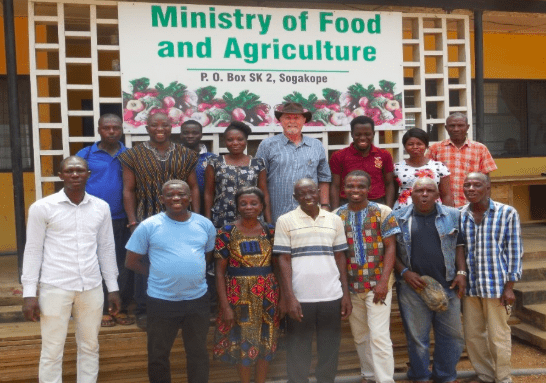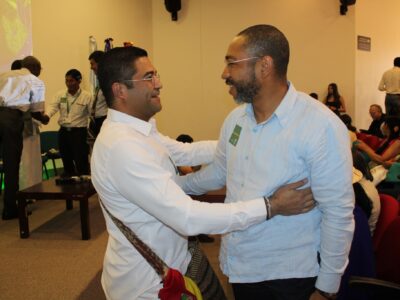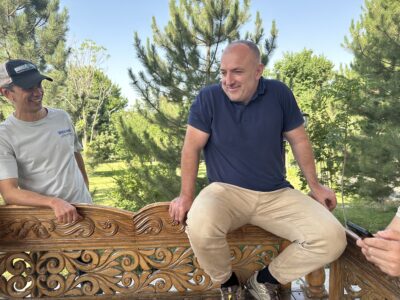
Following an extremely rewarding career with the United States Agency for International Development, I decided to focus my time on providing hands-on assistance to smallholder farmers around the world. When I saw that ACDI/VOCA was recruiting volunteers who had an expertise in sheep and goat production, I knew this could be that opportunity.
As a West Africa Farmer-to-Farmer Program volunteer with ACDI/VOCA, I would have the chance to return to Africa to work with farmers and help build their skills and knowledge. Before I knew it, I was on plane to Ghana for a two-week assignment to help the government’s Ministry of Food and Agriculture train their extension agents. These agents go out into the communities to assist goat and sheep producers and share best practices.
My first week as a volunteer was fast-paced and exciting. When I first arrived, I met with the ministry’s regional agricultural director of the Volta Region and the senior supervisory extension agent to discuss our approach to training, which involved an assortment of methods, including presentations and direct, hands-on demonstrations. After an assessment to better understand the training needs of the extension staff, I worked to identify, develop, and deliver targeted training to 17 Ministry of Food and Agriculture extension agents on how to control pests and diseases in small ruminants, such as sheep and goats. This included prevention tactics, causes, and nutritional standards that would help the animals build resilience and reduce their susceptibility to pests and diseases.
Because goats in Ghana are free-range and consume locally growing feeds and fodders in their surrounding villages, they often cannot get the necessary nutrients, such as calcium and phosphorous, that are vital to their health. In addition to pest and disease control, I also worked with the extension agents to fabricate mineral blocks made from locally sourced materials that are rich in calcium and phosphorous. These blocks consisted of burned or crushed shellfish shells, cement, and salt. Farmers received them for their goats to lick as they roamed freely.
With these trainings, extension agents under the ministry now have the tools and skills to provide extension services that will improve the livelihoods of more than 80,000 smallholder farmers in Ghana. I strongly believe that the development of small ruminant production is one of the most strategic approaches to building resilience among rural farmers, and I can’t wait for future opportunities to share my knowledge with other farmers around the world through the Farmer-to-Farmer Program.
Learn more about ACDI/VOCA’s volunteer programs.
Comments







